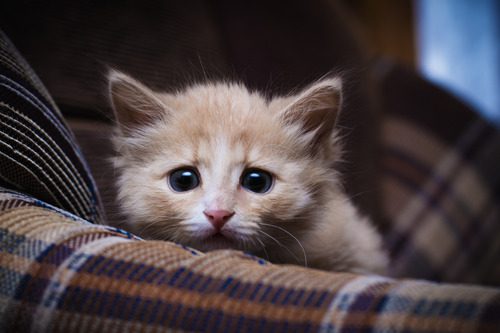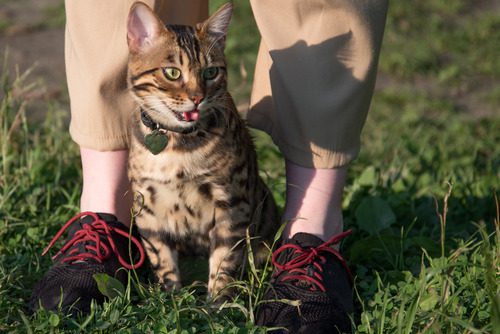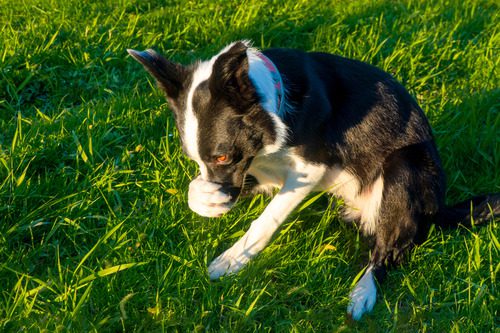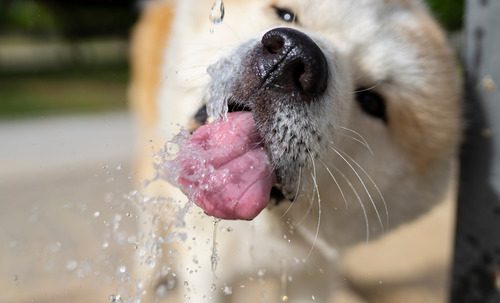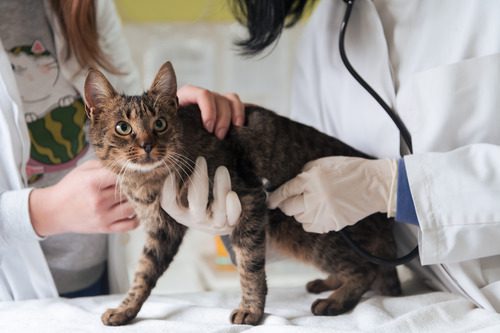7 Plants Toxic to Cats that Could be in Your Home or Garden
Creating a safe and inviting space for our beloved cats often involves more than just providing them with toys, comfort, and nourishment. It also means ensuring that our homes and gardens are free from potential dangers that we might not immediately recognize—like certain common plants. At Heart + Paw, we’re committed to helping you protect your cats from these hidden hazards. If you ever have concerns or need advice, call any of our Heart + Paw locations or book an appointment online today!
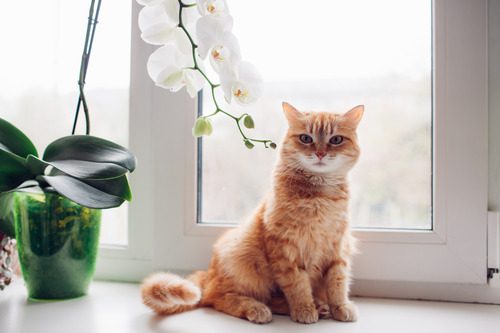
Lilies
Lilies are incredibly dangerous for cats. Even a small nibble on a leaf, petal, or pollen can lead to severe kidney problems. It’s crucial to know that not all lilies are toxic, but those belonging to the Lilium and Hemerocallis genera are the ones to watch out for. If you suspect your cat has come into contact with a lily, it’s important to seek veterinary attention immediately.
Recognizing Toxic Lilies
There are several types of lilies that are particularly harmful to cats, including the Easter lily, Tiger lily, and Daylily. These plants are not only beautiful but also highly toxic, and ingesting even a small amount can lead to serious health issues.
Sago Palm
The Sago Palm is a common choice for both indoor and outdoor decorations, yet many pet owners are unaware of its toxicity to cats. All parts of the plant, especially the seeds, contain cycasin, which can cause vomiting, diarrhea, and more severe symptoms like liver failure.
Symptoms of Sago Palm Poisoning
If your cat has ingested part of a Sago Palm, symptoms can include vomiting, diarrhea, lethargy, and seizures. Prompt veterinary care can make a significant difference in the outcome for your pet.
Tulips
Tulips are a popular bulb plant that can pose a risk to cats. The bulb contains the highest concentration of toxins, leading to oral irritation, drooling, and a drop in blood pressure. While the colorful flowers may attract your cat’s curiosity, it’s best to keep these plants out of reach or opt for pet-safe alternatives.
The Part of the Tulip That’s Most Dangerous
The bulb of the tulip is the most toxic part to cats. If you’re planting tulips or have them in a vase, ensure your cat cannot access the bulbs to prevent the risk of poisoning.
Azaleas and Rhododendrons
These beautiful flowering shrubs are toxic to cats, causing symptoms such as drooling, diarrhea, vomiting, and central nervous system depression. In severe cases, ingestion can lead to coma or death. Keeping these plants out of your garden or ensuring they are inaccessible to your cat is a wise precaution.
Daffodils
Daffodils, including their bulbs, are toxic to cats. Ingesting any part of the plant can cause vomiting, diarrhea, abdominal pain, and even heart problems. With spring being the peak season for daffodils, it’s important to monitor your cat closely if you have these flowers in your home or garden. The bulb of the daffodil contains the highest concentration of toxins. If you’re gardening or have these flowers at home, ensure your pets can’t dig up or chew on the bulbs.
Oleander
Oleander is a beautiful but deadly plant when it comes to pets, including cats. All parts of the oleander plant are toxic, causing symptoms like vomiting, lethargy, and potentially severe heart problems. If you have oleander in your garden, it’s critical to keep your cat safely away from the area.
Understanding Oleander Toxicity
The oleander plant, with its lovely flowers, can be tempting for a curious cat. Being aware of the plant’s toxic properties can help prevent accidental ingestion and the severe health issues that can follow.
Autumn Crocus
The Autumn Crocus can be particularly deceptive because it takes time for symptoms of toxicity to appear after ingestion. Initially, your cat may experience gastrointestinal distress, but severe liver and kidney damage can occur over time, along with respiratory failure. Due to the delayed onset of symptoms, it’s especially important to act quickly if you suspect your cat has ingested any part of an Autumn Crocus. Immediate veterinary care can be crucial.
Ensuring Your Home & Garden is Free From Toxic Plants
Creating a cat-friendly home and garden means being vigilant about keeping our beloved pets safe from the hidden dangers posed by certain plants. While our furry companions bring so much joy and companionship into our lives, it’s our responsibility to ensure their environment is as safe as possible. This includes being mindful of the plants we choose to decorate our homes and gardens with. If you’re ever in doubt about the safety of a particular plant, or if you think your cat may have ingested something toxic, we’re here to help. Our team at Heart + Paw is dedicated to the health and well-being of your pets. Feel free to call any of our locations or book an appointment online today for peace of mind and professional care for your cherished cat.
Recent Posts
Signs Your Cat Could Have Anxiety
When you think of anxiety, you might not immediately associate it with cats. However, our feline friends…
Is My Pet Alright? When Cat Panting Requires a Vet Visit
Caring for our cats means paying attention to all the little details that make them unique. One…
Dog Tooth Abscesses: Signs, Causes, Treatment and Prevention
When it comes to keeping your dog happy and healthy, oral health plays a significant role that…
Why Is My Dog Always Thirsty and Drinking a Lot of Water?
If you’ve noticed your dog lapping up more water than usual, you might be wondering if it’s…
Urinary Tract Infections in Dogs and Cats: How a Urinalysis Provides Important Information
When our pets seem off, it’s natural to worry, especially if you notice they’re having trouble going…
About Us
Heart + Paw was founded in 2018 by Chief Veterinary Officer Dr. George Melillo, who currently serves the Mid-Atlantic area. Heart + Paw offers a combination of veterinary care, pet grooming, and dog daycare to help be a resource in your pet parenthood journey.
We'd Love to Meet Your Four-Legged Friends
Find out how the friendly veterinary team at your local Heart + Paw can help your pets live longer, healthier lives by searching for a location near you.

